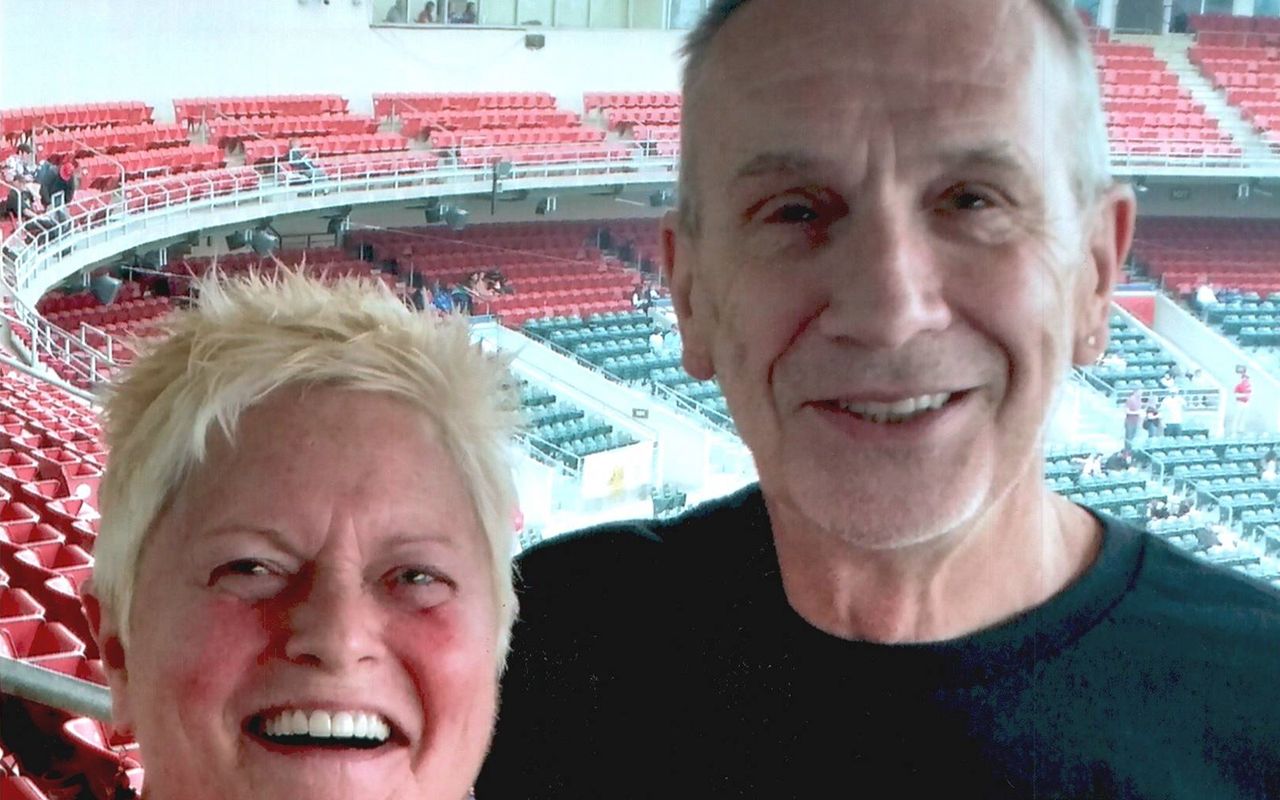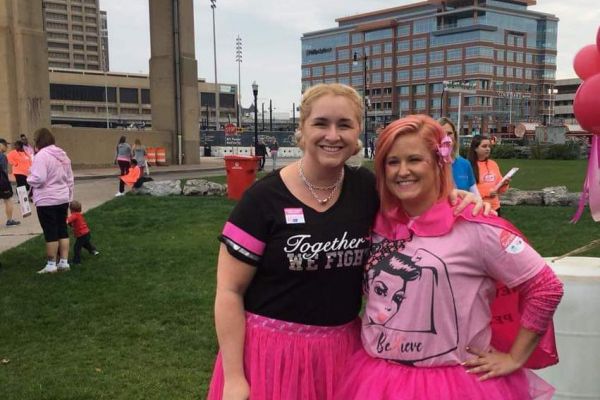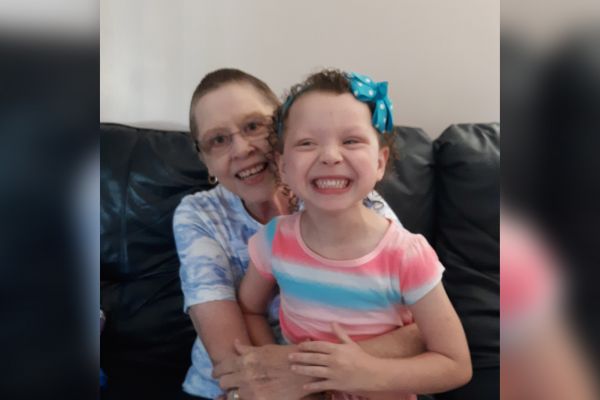Peter Pfohl knows firsthand how helpful it is to go through cancer treatment with someone who understands.
His father died from a recurrence of prostate cancer in 2004, at which point Peter started going twice a year for blood tests that monitor the level of prostate-specific antigen (PSA), a protein in the blood that can indicate the presence of prostate cancer when elevated. When his PSA level was found to be high in February 2021, his urologist, now part of Roswell Park Comprehensive Cancer Center’s Care Network, called the main Buffalo campus to get Peter an appointment.
“I had an MRI that showed a mass and the biopsy, in late May, showed four spots of cancer,” Peter says. “I had a consultation with Dr. Eric Kauffman and decided to have surgery, which was scheduled for July 29, 2021. It was a very streamlined process, which was very beneficial to my emotional health.”
By October 2021, Peter was given the green light, a clean bill of health, and to date he has had no indication of a return of the cancer or any long-term side effects.
Searching for a support system
Despite his family history of prostate cancer — his brother was later diagnosed with prostate cancer as well — Peter wanted to know what resources were available to him as a patient in remission as he went into survivorship. “I was kind of looking for some support, a buddy system, someone I could talk to who had experienced what I had to some degree,” he says. “Now that I was in remission and moving on with my life, I wanted to have the opportunity to talk about whether what I was feeling was normal and what I could look forward to.”
A quick search introduced Peter to Roswell Park’s Cancer Coach Program, in which current patients or people who have just completed treatment are paired with someone who has faced a similar diagnosis.
It was exactly what he was looking for, Peter says: He was connected to Mike, a retired professor who also had been treated for prostate cancer. The two men spoke once a week for a few months, sharing their experiences and concerns, with Mike providing the reassurance and guidance Peter needed.
“My coach helped me clean out the garbage in my head that I had created. I just wanted the ‘C’ word to go away. I didn’t want it to be part of my life any longer,” he says. “I wanted to be able to look back on it and go, ‘Well, that was an experience for me.’ With Mike’s help, I was able to clarify for myself what the circumstances were and what I needed to do.”
The relationship was so helpful and beneficial that Peter marked his calendar for July 29, 2023: the two-year anniversary of his surgery, and the start of his eligibility to be a cancer coach himself.
“I knew this was what I needed to do, paying it forward,” he says. “If I can be of service and help somebody else going through this, I want to.”
It can be difficult for people — and men especially, Peter says — to ask for help, struggling with feeling alone when they’re diagnosed and unsure where to turn for help and support during a difficult time. “Fortunately, I was able to get out of my own way and ask for help.”
We are here to help
A cancer diagnosis can be a difficult and overwhelming experience for patients and their caregivers. We offer a multitude of Support Services to help offer care to you — not just your cancer.
Support for newly diagnosed patients
That’s exactly what the Cancer Coach program is for, says Angela Braun, the program’s coordinator. “It’s important to offer additional support for newly diagnosed patients. Once they’re diagnosed, they’re all over the place with their thoughts. Their wheels are spinning. If we can connect them with a patient who has been through it, or been through some form of (cancer), it’s helpful just to have someone to talk to.”
There’s no one way to be, or have, a Cancer Coach. Each pairing is different and each relationship will last for a different length of time, with some people wanting just one conversation while others develop long-lasting friendships.
Roswell Park currently has more than 60 coaches available to help newly diagnosed patients feel a little less alone and a little more supported, and more than 200 people are working with coaches on their journey.
Coaches will share whatever information they feel is pertinent and they’re comfortable sharing, with the understanding that not every patient will receive the same treatment for their cancer. Some coaches might even have a different type of cancer than the person they’re coaching, but the program does try to match people with similar diseases when possible.
Each Roswell Park Cancer Coach goes through a special training program to understand the best way to mentor their patient, in addition to taking the same training required by all Roswell Park volunteers to understand the finer points of privacy protection in a medical environment.
“I take all new coaches back to that time when they were first diagnosed, so they remember what it was like,” says Richard Satterwhite, a Patient Engagement Specialist at Roswell Park. “Let’s go back in time to what it was like when you first went through this and imagine if someone doesn’t have the same skills for dealing with this news. We talk about being an active, patient listener and being truly engaged in the moment. We talk about empathy and dealing with conflict, not taking things personally.”
Patients are also told that, if their coaching partner doesn’t work out for them, for any reason, they can be reassigned to another person. As a prostate cancer survivor himself, Satterwhite says it’s important for patients to feel comfortable and trust their coach, otherwise they won’t fully benefit from the program.
“It was not long after my initial diagnosis that I ended up with the guys who would ultimately form MANUP,” a support group for prostate cancer survivors, he says. “We were a bunch of guys who were lost souls, trying to figure out our experience. I was glad I found them. Cancer is unlike anything else and, in order for us to complete the patient and family experience, this kind of care is part of the process.”
Giving back as a survivor
Peter is excited to get started as a coach and is eager to help other patients on their journey.
“I knew this was something I wanted to do. My father was a member of the Greatest Generation and he lived his life that way, giving back. After I personally experienced how wonderful the program was and how it worked for me, I couldn’t wait to sign up,” he says.
The Cancer Coach program is supported by Roswell Park donors with Quality-of-Life Program funding through the Roswell Park Alliance Foundation.
Editor’s Note: Cancer patient outcomes and experiences may vary, even for those with the same type of cancer. An individual patient’s story should not be used as a prediction of how another patient will respond to treatment. Roswell Park is transparent about the survival rates of our patients as compared to national standards, and provides this information, when available, within the cancer type sections of this website.


